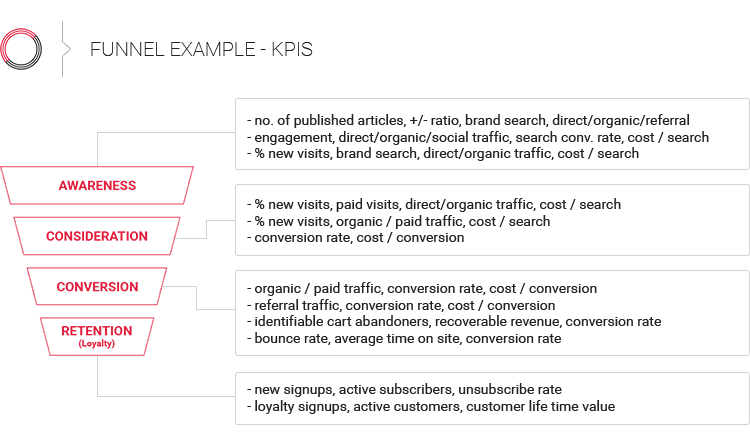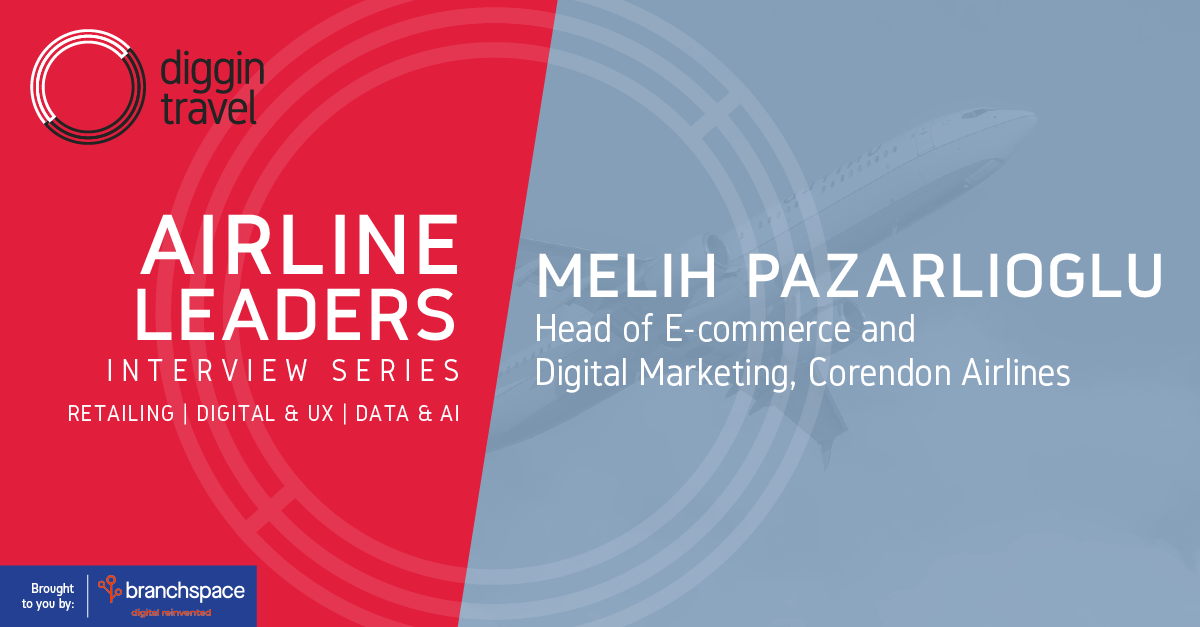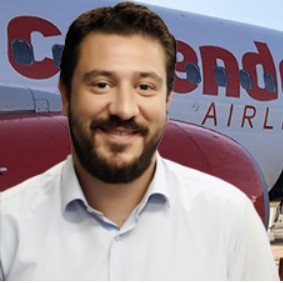Select Sidearea
Populate the sidearea with useful widgets. It’s simple to add images, categories, latest post, social media icon links, tag clouds, and more.


hello@youremail.com
+1234567890
+1234567890
Populate the sidearea with useful widgets. It’s simple to add images, categories, latest post, social media icon links, tag clouds, and more.


Iztok Franko

This interview is part of our exclusive ‘Airline Leaders Series,’ conducted in collaboration with Branchspace – digital reinvented, aiming to transform airlines into better digital retailers. Throughout the series, we’ll highlight the key concepts that are shaping modern airline digital retailing, ensuring you gain valuable insights from each discussion.
Leader: Melih Pazarloglu
Airline: Corendon Airlines
Role: Head of E-commerce and Digital Marketing
Location: Istanbul, Turkey
Talks about: E-Commerce, Digital Marketing, Distribution, B2B and B2C channels, Technology

Why do you need to read this interview:
Melih is a great example of an airline e-commerce leader, leading the transformation of what used to be a tour operator airline, reliant on B2B and agency sales, into one focused on a direct retail approach. The transformation he and his team are implementing is relevant for all airlines looking to boost their direct sales channels and distribution. Their focus on conversion optimization, effective use of technology, and modern digital marketing strategies are key elements for any airline aiming to successfully transition to digital retailing. This interview offers practical insights into this important process and is beneficial for anyone interested in the evolving landscape of airline commerce.
Melih: Corendon Airlines has been in the market the last 20 years. First, Corendon Airlines was established in the Netherlands as a tour operator when the Corendon when the brand was first introduced. Then, in 2005, we expanded into the airline business. Our operations now include Corendon Airlines, Corendon Dutch Airlines, and Corendon European Airlines.
Until 2017, the majority of our business focused on B2B. Then the company has decided to move from B2B to the B2C side. Over the past five to six years, we have primarily invested in our channels. Additionally, during the pandemic, we further invested in B2C, digitalization, and customer services. Now, Corendon Airlines serves many different countries. Germany is one of our main markets, and we have recently entered the UK market. Additionally, we operate flights from the Netherlands, Belgium, Austria, and Poland. We cater to two types of customers. The first includes ethnic groups, particularly from Turkey and other countries. The second, and our main focus, is leisure travel. Our aircraft are busiest from April to October, primarily flying to popular leisure and holiday destinations.
Melih: Our company’s strategy revolves around a multichannel approach. We continue to engage in B2B activities and maintain close collaborations with operators and agencies across different countries. This aspect constitutes about half of Corendon’s business. The other half is increasingly focused on e-commerce, working closely with OTAs and meta-search engines. Thus, we definitely employ a multichannel strategy. Additionally, Corendon is committed to further investing in the e-commerce and digitalization, which is why we are also investing in CRM and customer service capabilities.
But when it comes to our website, we are really focusing on user experiences, and also we are really focusing on CRO (conversion rate optimization), and we keep doing A/B testing and we track the footprint of the customers. Every year, our ecommerce share is increasing. That’s why we created one great team, and every year we are a little bigger team. Also we got new team members as well within the different channels.
When we talk about the ecommerce side, now we have one Corendon Airlines website that we’ve launched in 2021, March. The development of this site took nearly two years, involving extensive research and collaboration with various UX agencies and we created something like an industrial engineering website. We wanted to create a website where you can do more than just come and buy a ticket.
Another focus area for us is the sale of ancillaries. We continually develop new products and features, integrating them into our website. Today, an airline’s website does more than just sell flights. We are evolving it into a retail-like platform, adopting strategies similar to those used by businesses like Amazon or eBay. We apply these tactics on our site and track customer interactions using various tools to analyze their preferences and conversion rates. Additionally, we conduct surveys and pay close attention to the payment tools we offer.
Additionally, over the past two years, we’ve invested in our mobile application, recognizing it as a key driver for our business. We’ve observed that while most of our traffic comes from mobile devices, the majority of sales are still made via desktop. However, this trend is gradually shifting; people are becoming more comfortable making purchases through our application and mobile platform. Consequently, our e-commerce team manages two distinct strategies: one for the website and another for the mobile application, the latter being a key area of future investment.
Melih: For the ecommerce team, the most indicators of what we are looking for, and now, as Corendon Airlines, we are ready for the market. Our current focus is on developing new features and understanding our customers, especially as we manage an international website. We operate corendonairlines.com in six different languages – Turkish, English, with German as the primary language, followed by Polish, Dutch, and Danish.”
We operate our website in six languages, and with each language version, we encounter unique challenges. For instance, we use localization on the English pages. Visitors from the UK see different banners and the website automatically displays prices in pounds, not euros. Similarly, German visitors see banners relevant to Germany. This localization is crucial when managing a site in multiple languages, as what works for English users may not suit German users, and vice versa. Therefore, my team places a strong emphasis on localization in our marketing strategies.
We analyze different customer groups and have identified many segmentations. Broadly, we can categorize them into two main groups: ethnic and touristic. The expectations of ethnic groups differ from those of touristic groups. Typically, ethnic groups, especially families, tend to book their tickets much earlier, around 180 to 200 days before departure. This is partly because ticket costs have significantly risen over the last two years, making it challenging for families to afford season tickets. They prefer to buy early to avoid higher prices later.
Conversely, during the peak season, it’s mostly couples, singles, or groups of friends who make purchases, generally within the last 30 to 20 days before departure. While not exactly last-minute, they tend to buy closer to their travel date. Therefore, we tailor our offers and campaigns to these differing patterns, effectively targeting our customer segments with specific offers.
Melih: The main topic remains digitalization. But now, digitalization is not like before, because when we talk about digitalization, we also need to consider AI, machine learning, and robotics. As much as possible, we are trying to implement AI into our system. However, it takes time. Discussing technology is straightforward, but actually implementing and adapting processes to AI is not as simple.
What we are attempting to do, for example with our advertisements, is to implement smart bidding. This involves integrating with the back-end system based on the load factor of each flight. We advertise each flight on Google and other paid channels. The advertising spend varies with the load factor: if the load factor is high, our advertising cost is lower. Conversely, if the load factor is low as we approach departure, our spending automatically increases. So that kind of thing we are trying to use on our ecommerce side and our digital marketing side.
Across different channels, including customer service, we aim to reduce staff costs with AI. When customers call, the machine learning system records their words, allowing us to collect data from these interactions. This year, we plan to implement automated responses and enable ticket sales without the need for an agent. We intend to integrate AI into Corendon’s customer service operations as well.
Within our website, we utilize various CRO (Conversion Rate Optimization) tools, and it’s clear that AI technology is really important. We don’t need to set everything manually anymore. The system itself can identify problem areas, distinguishing between those with high and low conversion potential. So, we aim to apply the same AI technology to increase the conversion rates.
Melih: When we consider our future, it’s essential first to understand what type of customer we will be serving in five years. I think this is the main question.
The customer is changing. Compared to five years ago, when people frequently purchased tickets through agencies and operators, this trend is gradually declining. In five years, I anticipate significant changes in the aviation industry. That’s why our e-commerce investments are crucial for Corendon Airlines. That’s why we need to be more digital. We need to be using our system without people. We should be managing the system; we should not be managing people. People should be managing the system.
Also, we need to be on the smart devices. While today we rely on smartphones, in five years, these devices may be obsolete. Future technology could include rings, smart eyewear, or even eye-controlled interfaces. So I don’t think in five years we will be still using the same devices. This evolution means people might book flights with a simple eye gesture. Therefore, it’s crucial for our business to be prepared. If we don’t invest now in these emerging technologies, we risk falling behind. Our goal is to remain a key driver in the industry, adapting to and embracing these changes.
When you look at the Turkish market, notable brands like Pegasus and Turkish Airlines come to mind. We are now among the largest airline companies in Turkey, a status we’ve achieved over the last four years. Now, we can say we have established our own customer base that prefers purchasing their flight tickets with Corendon Airlines. However, customer purchasing behavior will continue to change, so we have to change and we need to invest in technology. If you don’t have the technology, and if you don’t follow the trends, you cannot be alive in this industry.
If you want to learn from leaders like Melih about how to advance your airline digital retailing or want to be the first to know when our next Airline Digital Talk will be published, please:
I am passionate about digital marketing and ecommerce, with more than 10 years of experience as a CMO and CIO in travel and multinational companies. I work as a strategic digital marketing and ecommerce consultant for global online travel brands. Constant learning is my main motivation, and this is why I launched Diggintravel.com, a content platform for travel digital marketers to obtain and share knowledge. If you want to learn or work with me check our Academy (learning with me) and Services (working with me) pages in the main menu of our website.
Download PDF with insights from 55 airline surveyed airlines.
Thanks! You will receive email with the PDF link shortly. If you are a Gmail user please check Promotions tab if email is not delivered to your Primary.
Seems like something went wrong. Please, try again or contact us.


No Comments